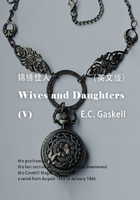As soon as the noise of the hoofs was lost in the distance D'Artagnan remounted the bank of the stream and scoured the plain, followed by his three friends, directing their course, as well as they could guess, toward London.
"This time," said D'Artagnan, when they were sufficiently distant to proceed at a trot, "I think all is lost and we have nothing better to do than to reach France. What do you say, Athos, to that proposition? Isn't it reasonable?"
"Yes, dear friend," Athos replied, "but you said a word the other day that was more than reasonable—it was noble and generous. You said, 'Let us die here!' I recall to you that word."
"Oh," said Porthos, "death is nothing: it isn't death that can disquiet us, since we don't know what it is. What troubles me is the idea of defeat. As things are turning out, I foresee that we must give battle to London, to the provinces, to all England, and certainly in the end we can't fail to be beaten."
"We ought to witness this great tragedy even to its last scene," said Athos. "Whatever happens, let us not leave England before the crisis. Don't you agree with me, Aramis?"
"Entirely, my dear count. Then, too, I confess I should not be sorry to come across Mordaunt again. It appears to me that we have an account to settle with him, and that it is not our custom to leave a place without paying our debts, of this kind, at least."
"Ah! that's another thing," said D'Artagnan, "and I should not mind waiting in London a whole year for a chance of meeting this Mordaunt in question. Only let us lodge with some one on whom we can count; for I imagine, just now, that Noll Cromwell would not be inclined to trifle with us. Athos, do you know any inn in the whole town where one can find white sheets, roast beef reasonably cooked, and wine which is not made of hops and gin?"
"I think I know what you want," replied Athos. "De Winter took us to the house of a Spaniard, who, he said, had become naturalized as an Englishman by the guineas of his new compatriots. What do you say to it, Aramis?"
"Why, the idea of taking quarters with Senor Perez seems to me very reasonable, and for my part I agree to it. We will invoke the remembrance of that poor De Winter, for whom he seemed to have a great regard; we will tell him that we have come as amateurs to see what is going on; we will spend with him a guinea each per day; and I think that by taking all these precautions we can be quite undisturbed."
"You forget, Aramis, one precaution of considerable importance."
"What is that?"
"The precaution of changing our clothes."
"Changing our clothes!" exclaimed Porthos. "I don't see why; we are very comfortable in those we wear."
"To prevent recognition," said D'Artagnan. "Our clothes have a cut which would proclaim the Frenchman at first sight. Now, I don't set sufficient store on the cut of my jerkin to risk being hung at Tyburn or sent for change of scene to the Indies. I shall buy a chestnut-colored suit. I've remarked that your Puritans revel in that color."
"But can you find your man?" said Aramis to Athos.
"Oh! to be sure, yes. He lives at the Bedford Tavern, Greenhall Street. Besides, I can find my way about the city with my eyes shut."
"I wish we were already there," said D'Artagnan; "and my advice is that we reach London before daybreak, even if we kill our horses."
"Come on, then," said Athos, "for unless I am mistaken in my calculations we have only eight or ten leagues to go."
The friends urged on their horses and arrived, in fact, at about five o'clock in the morning. They were stopped and questioned at the gate by which they sought to enter the city, but Athos replied, in excellent English, that they had been sent forward by Colonel Harrison to announce to his colleague, Monsieur Bridge, the approach of the king. That reply led to several questions about the king's capture, and Athos gave details so precise and positive that if the gatekeepers had any suspicions they vanished completely. The way was therefore opened to the four friends with all sorts of Puritan congratulations.
Athos was right. He went direct to the Bedford Tavern, and the host, who recognized him, was delighted to see him again with such a numerous and promising company.
Though it was scarcely daylight our four travelers found the town in a great bustle, owing to the reported approach of Harrison and the king.
The plan of changing their clothes was unanimously adopted. The landlord sent out for every description of garment, as if he wanted to fit up his wardrobe. Athos chose a black coat, which gave him the appearance of a respectable citizen. Aramis, not wishing to part with his sword, selected a dark-blue cloak of a military cut. Porthos was seduced by a wine-colored doublet and sea-green breeches. D'Artagnan, who had fixed on his color beforehand, had only to select the shade, and looked in his chestnut suit exactly like a retired sugar dealer.
"Now," said D'Artagnan, "for the actual man. We must cut off our hair, that the populace may not insult us. As we no longer wear the sword of the gentleman we may as well have the head of the Puritan. This, as you know, is the important point of distinction between the Covenanter and the Cavalier."
After some discussion this was agreed to and Mousqueton played the role of barber.
"We look hideous," said Athos.
"And smack of the Puritan to a frightful extent," said Aramis.
"My head feels actually cold," said Porthos.
"As for me, I feel anxious to preach a sermon," said D'Artagnan.
"Now," said Athos, "that we cannot even recognize one another and have therefore no fear of others recognizing us, let us go and see the king's entrance."
They had not been long in the crowd before loud cries announced the king's arrival. A carriage had been sent to meet him, and the gigantic Porthos, who stood a head above the entire rabble, soon announced that he saw the royal equipage approaching. D'Artagnan raised himself on tiptoe, and as the carriage passed, saw Harrison at one window and Mordaunt at the other.
The next day, Athos, leaning out of his window, which looked upon the most populous part of the city, heard the Act of Parliament, which summoned the ex-king, Charles I., to the bar, publicly cried.
"Parliament indeed!" cried Athos. "Parliament can never have passed such an act as that."
At this moment the landlord came in.
"Did parliament pass this act?" Athos asked of him in English.
"Yes, my lord, the pure parliament."
"What do you mean by 'the pure parliament'? Are there, then, two parliaments?"
"My friend," D'Artagnan interrupted, "as I don't understand English and we all understand Spanish, have the kindness to speak to us in that language, which, since it is your own, you must find pleasure in using when you have the chance."
"Ah! excellent!" said Aramis.
As to Porthos, all his attention was concentrated on the allurements of the breakfast table.
"You were asking, then?" said the host in Spanish.
"I asked," said Athos, in the same language, "if there are two parliaments, a pure and an impure?"
"Why, how extraordinary!" said Porthos, slowly raising his head and looking at his friends with an air of astonishment, "I understand English, then! I understand what you say!"
"That is because we are talking Spanish, my dear friend," said Athos.
"Oh, the devil!" said Porthos, "I am sorry for that; it would have been one language more."
"When I speak of the pure parliament," resumed the host, "I mean the one which Colonel Bridge has weeded."
"Ah! really," said D'Artagnan, "these people are very ingenious. When I go back to France I must suggest some such convenient course to Cardinal Mazarin and the coadjutor. One of them will weed the parliament in the name of the court, and the other in the name of the people; and then there won't be any parliament at all."
"And who is this Colonel Bridge?" asked Aramis, "and how does he go to work to weed the parliament?"
"Colonel Bridge," replied the Spaniard, "is a retired wagoner, a man of much sense, who made one valuable observation whilst driving his team, namely, that where there happened to be a stone on the road, it was much easier to remove the stone than try and make the wheel pass over it. Now, of two hundred and fifty-one members who composed the parliament, there were one hundred and ninety-one who were in the way and might have upset his political wagon. He took them up, just as he formerly used to take up the stones from the road, and threw them out of the house."
"Neat," remarked D'Artagnan. "Very!"
"And all these one hundred and ninety-one were Royalists?" asked Athos.
"Without doubt, senor; and you understand that they would have saved the king."
"To be sure," said Porthos, with majestic common sense; "they were in the majority."
"And you think," said Aramis, "he will consent to appear before such a tribunal?"
"He will be forced to do so," smiled the Spaniard.
"Now, Athos!" said D'Artagnan, "do you begin to believe that it's a ruined cause, and that what with your Harrisons, Joyces, Bridges and Cromwells, we shall never get the upper hand?"
"The king will be delivered at the tribunal," said Athos; "the very silence of his supporters indicates that they are at work."
D'Artagnan shrugged his shoulders.
"But," said Aramis, "if they dare to condemn their king, it can only be to exile or imprisonment."
D'Artagnan whistled a little air of incredulity.
"We shall see," said Athos, "for we shall go to the sittings, I presume."
"You will not have long to wait," said the landlord; "they begin to-morrow."
"So, then, they drew up the indictments before the king was taken?"
"Of course," said D'Artagnan; "they began the day he was sold."
"And you know," said Aramis, "that it was our friend Mordaunt who made, if not the bargain, at least the overtures."
"And you know," added D'Artagnan, "that whenever I catch him I will kill him, this Mordaunt."
"And I, too," exclaimed Porthos.
"And I, too," added Aramis.
"Touching unanimity!" cried D'Artagnan, "which well becomes good citizens like us. Let us take a turn around the town and imbibe a little fog."
"Yes," said Porthos, "'twill be at least a little change from beer."















